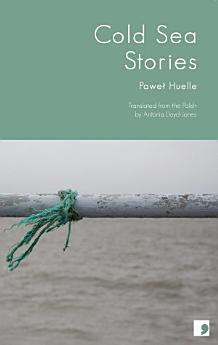Cold Sea Stories
About this ebook
Against the backdrop of the Baltic coast, mythology and meteorology mix with the inexorable tide of political change: Kashubian folklore, Chinese mysticism and mediaeval scholarship butt up against the war in Chechnya, 9-11, and the struggle for Polish independence. Central to Huelle s imagery is the vision of the refugee be it the Chechen woman carrying her newborn child across the Polish border (her face emblazoned on every TV screen), the survivor of the Gulag re-appearing on his friends doorstep, years after being presumed dead, or the stranger who befriends the sole resident of a ghostly Mennonite village in the final days of the Second World War. Each refugee carries a clue, it seems, or is in possession or pursuit of some mysterious text or book, knowing that only it like the Chinese Book of Changes can decode their story. What we do with this text, this clue, Huelle seems to say, is up to us.
About the author
Gdansk novelist and short story writer Pawel Huelle spent his early writing career as an employee of the Solidarity Movement’s press office in the late 1980s. He subsequently achieved enormous success (both domestically and in translation) as a writer, and has been honoured with many prestigious awards. His first novel Weiser Dawidek (1987) – described by critics in Poland as ‘the book of the decade’, ‘a masterpiece’ and ‘a literary triumph’ and eliciting comparisons to Günter Grass and Bruno Schulz – has been widely translated.
Huelle followed Weiser Dawidek with Moving House and Other Stories (1991), First Love and Other Stories (1996), Mercedes Benz (2001), and Castorpe (2004). The latter novel was published in English translation (Serpent’s Tale, 2007) and was shortlisted for the 2008 Independent Foreign Fiction Prize. His anthology Cold Sea Stories was published in 2012.




